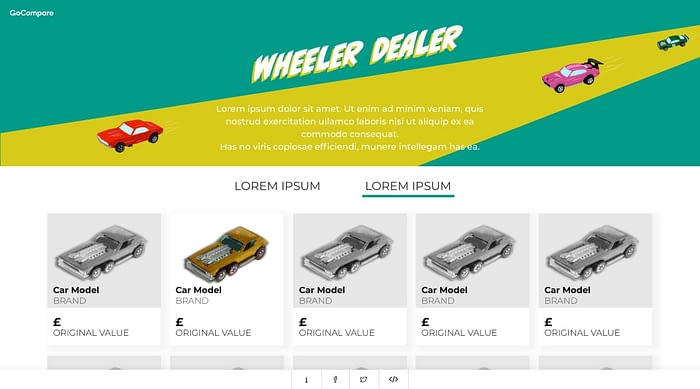Producing newsworthy content for our clients means communicating a level of authority between industries that we (quite often) have no first-hand experience of working in and journalists who have years of experience covering sectors that our clients sit within.
Often, we can rely on client spokespeople to provide comments for the press and which analyse the work we produce. But content that is built to earn links can also cover topics and conversations that stretch beyond a client’s product while still remaining relevant for them to talk about, which means we often look further afield to find people who can offer valuable perspectives on our stories, or help us construct our content from the very beginning.

In my time at Verve Search, I’ve been lucky enough to work with world-renowned scientists and academics, artists, authors, photographers, gamers, and experts on more subjects than you can shake a stick at. All of these individuals and organisations have taken our stories from being a collection of interesting statistics or attractive pieces of content to something more newsworthy, which is brought to life by the authority behind their words.
How we work with collaborators depends largely on which gaps of authority exist within the production and PR strategy of each piece of content. Here are just some examples of how we’ve worked with expert collaborators in the past:
- We’ve worked hand-in-hand with charities like Colour Blind Awareness and Student Minds to highlight important issues and sensitive subjects
- We’ve partnered with world-renowned academics and specialists to plan and execute our campaigns, like we did here with Harvard University for Babylon Health
- We’ve tapped into the unique resources of subject specialists to create in-depth campaigns with data that is normally unavailable to the public. We worked with Ian Shirley (editor of Record Collector magazine’s ‘Rare Record Price Guide‘) to put together reams of imagery and information not found elsewhere about hugely valuable vinyl records
- We’ve received valuable commentary from industry experts on our survey results and independent research. For Influencer Investors, our Paxful campaign about stock market guidance on TikTok, we asked financial planner and psychologist Dr. Brad Klontz for his expert analysis of our findings and created a valuable Q&A asset
The Outreach case for finding collaborators
One key indicator to any campaign’s success is how many high-quality and authoritative links it generates, and it should almost go without saying that journalists will appreciate a story being sent their way that is supported by reliable and authoritative experts within a relevant field. I spoke to Tonje, one of Verve Search’s super-talented Outreach Specialists, to ask about why the team finds it useful to lean on the expertise of external sources…
Q&A with Tonje Odegard, Outreach Specialist
Why is outreaching more successful when there’s an externally-sourced expert attached to the story?
First of all, in addition to a credible data source, journalists always need quotes in order to complete a classic news story or feature. If we can provide these from a relevant and credible expert or collaborator, it will save the journalist having to source these from elsewhere, increasing our chances of them using our content (and ultimately linking). Alongside having graphs and illustrations from the campaign, we’re essentially providing a one-stop shop for the journalist.
Secondly, having expert commentary or quotes adds substance, credibility and gravity to the pitch, which again increases the chances of it being covered. For instance, when working with Babylon Health, we used expert commentary from the doctors there on several occasions in our campaigns and outreach. Overall, we secured links in high-punching publications such as The Telegraph, City AM, Time Out, Metro, New York Post, Houston Chronicle, Forbes, and Cosmopolitan as a result.
What kind of things do you think journalists are interested in when it comes to experts and collaborators?
The clue is in the name; the purpose of experts and collaborators for journalists is exactly that – to provide their expertise on the subject the journalist is covering. They are an essential part of any news story or feature as it helps break up the article into a more digestible format for the reader as well as offer credibility. In essence, experts help explain the topic covered in a story.
Are expert Q&As useful to have on hand?
Q&As are a formidable way to convey information in a conversational tone that is easy for the journalist to turn into quotes – if they’re feeling really lazy, they can even copy and paste it entirely. But having the expert ready at hand to answer any additional follow-up questions is also key as many journalists want something unique or more specific to use in their article.
Do you think journalists find campaigns more reliable when they are backed up with an external expert’s data and imagery rather than completely in-house assets?
Yes, I definitely believe so. Having an expert involved who is willing to endorse the campaign’s message demonstrates to the journalist that this is a legitimate and reliable source of information. If the expert comes from the client we are representing, there is a danger that the pitch can appear too commercial, but this will usually not be the case if the expert is relevant and credible – so always make sure they are. Using an external expert can often add more credibility.
How important is it to journalists that a field expert provides commentary and context on independent research findings?
As mentioned above, it helps cement the credibility of the data and message of the campaign. Any good journalist would seek to back up claims made in their article and as such, they would try to hunt down a relevant person to comment on the findings. If we can present this person at the same time as pitching them the research, both us and the journalist have killed two birds in one stone.
So, where should you begin?
Identify your needs
There are different ways you can incorporate an outside expert in your campaign. At what point they enter the production process depends on how best you think they’ll be able to contribute to the project. In my time at Verve, our collaborator partnerships have usually fallen into one of the following categories:
- They comment on our in-house study. This means we’ve sourced our own data and broken it down into key findings. We may have run a study and come to some interesting conclusions, or collected a huge variety of new information via freedom of information requests. Either way, we’re looking for an authority on whatever the subject may be to give us some all-important context to what we’ve found out. We want them to answer some burning questions that have arisen because of surprising or even predictable discoveries we’ve made – answers that journalists love to feature and readers instantly trust. Ask yourself whether you need someone to answer your burning questions.
- They advise us on a methodology and provide commentary where necessary. Sometimes we need collaborators to help shape the building blocks of our campaign. It means we have the story in our mind, but we need specialist guidance on how to execute something that needs an expert eye. We ran a campaign called Understanding Dementia and knew that the subject needed an official figure on dementia to ensure our campaign handled the subject with the sensitivity and authority it deserved. We worked with a leading dementia expert to give us her vision for how our planned games and puzzles could successfully emulate the confusion and frustration associated with the condition. We’ve also worked in this capacity with world-renowned academics and specialists who’ve advised on our campaigns at early junctions, like planning survey questions, helping shape extra angles to our research. Ask yourself whether you need expert guidance to build your project.
- They lend us resources that are otherwise not openly accessible. Some campaigns rely on the knowledge and resources of industry professionals. We’ve worked with all sorts of individuals and companies over the years that have given us their time and expertise to help create a more valuable piece of content for the news landscape. For example, Wheeler Dealer for GoCompare saw us partner up with an expert on vintage toy cars who gave us lots of specialist data and imagery…

…and we tasked the talented 3D-modelling artists at 3DLines with creating fantastic photorealistic mock-ups of familiar TV and movie rooms remade for the modern-day. Ask yourself whether your campaign needs the unique resources of an interesting individual or company.
But where can you find the right expert?
Where to find an expert
- Use free find-an-expert search engines
Some of the best universities in the world have find-an-expert indices that list the academics and experts open to helping out the media. Here are some key ones:
- Oxford University’s Find an Expert index
- UCL’s Find an Expert index
- Expertise Finder
You can usually search by field of study to help you track down the best person for your needs. If you’re going down the academic route, you should also try googling scientific studies and research institutions relevant to your subject to discover their authors. Why not try reaching out to them? We went to Professor Daniel Russell, a leading loneliness expert who developed the globally recognised UCLA Loneliness Scale, for guidance on our loneliness project with former client Echo.
- Use social media
One of the best resources for widening your network is Twitter. Search out highly followed and influential people on the subject you’re working on. We contacted Matt Huxley, an esports lecturer at Staffordshire University, through Twitter, and he agreed to help us out with our project Esports Elites for Casumo. Matt had a large social media following and was used to being featured in the media, so we knew he was a fantastic authority to comment on our findings.
- Find a book
Don’t worry, you won’t need a library card for this one! We’ve found expert collaborators by searching for books around our subject of interest. If you can track down and contact the authors or researchers (perhaps through their personal websites, social media, or publishers), you might just find that they’ll be really enthusiastic about your project.
In the past, Amazon has proved to be a useful resource for finding the right books. We used this method to find an expert to help us answer some questions for our project Crep Check for Farfetch. Crep Check is a database of the most valuable trainers in the world, and we included rankings for the shoes that have appreciated the most in value from their original retail price. We knew that finding a top sneaker expert and having them answer some questions would give journalists an extra angle to feature, so we searched online for experts and found one in the form of Mathieu le Maux, author of ‘1000 Sneakers: A Guide to the World’s Greatest Kicks, from Sport to Street’.
We sent Mathieu a message over Twitter and it didn’t take long for him to get back to us. The result? GQ magazine and the Daily Mail featured some of his comments prominently:
We used this method again to search for a reputable source of data, high-quality imagery, and expert commentary for Record Value, our project with Australian life insurance company NobleOak. Our answer came in the form of Ian Shirley, editor of ‘The Rare Record Price Guide’. Ian was the perfect fit for our campaign and gave us plenty of resources to work with as well as giving us valuable information about each of the 75 records in the final campaign.
- Find a charity
We’ve partnered with lots of charities over the years and the benefits of attaching the campaign to the name of a reputable and established charity are numerous.
With Understanding Dementia, our Babylon Health campaign that attempted to reflect the effects of dementia with a series of frustrating games and puzzles, we partnered with Professor June Andrews, a renowned dementia expert to help us out.
June provided guidance on what effects we could attempt to reflect with our games, plus commentary on our games to help the user understand what aspects of dementia they were experiencing.
We partnered with two mental health charities for another project with Babylon Health called Student Stress. Both charities appealed in person and on their Twitter and social media accounts for students to tell us what stress felt like in their own words. We received lots of evocative descriptions of mental health from students all around the world, and our talented designers went to work illustrating them.
- Keep up with the news
We’ve secured collaborators in the past by reaching out to them as a result of seeing their work in the news. It’s a surefire way to find names that are trusted by journalists as an authority on a subject.
And finally…
When should you budget for expert collaborators?
It’s always worth keeping a budget in mind if you expect to ask a collaborator to do a large amount of work for you.
Before you reach out to someone, ask yourself:
- How much of their time are we asking them to take up?
- Are they just doing their day job, but for us? If so, they’ll expect to be paid.
- Is this specific expert absolutely vital to the story earning coverage? If they require a fee, it’s worth thinking about putting aside some of your budget to cover it.
Sometimes, budgets will be tight. In many cases, you’ll be able to get a collaborator on board for free just by outlining the (credited) coverage they themselves will receive by taking part in your project. For a lot of people, this is sometimes compensation enough for being involved, especially if we know we’re presenting them with fascinating new insights around their specialist topic.
Keep your communication respectful of your collaborator’s energy and time and you’ll be able to build a creative partnership that will always be useful to have on hand.
Further reading:
- How to enhance your Digital PR outreach with expert quotes [1]
- 20 examples of great quotes for your press release [2]
Interested in our content marketing and digital PR services? Get in touch.






